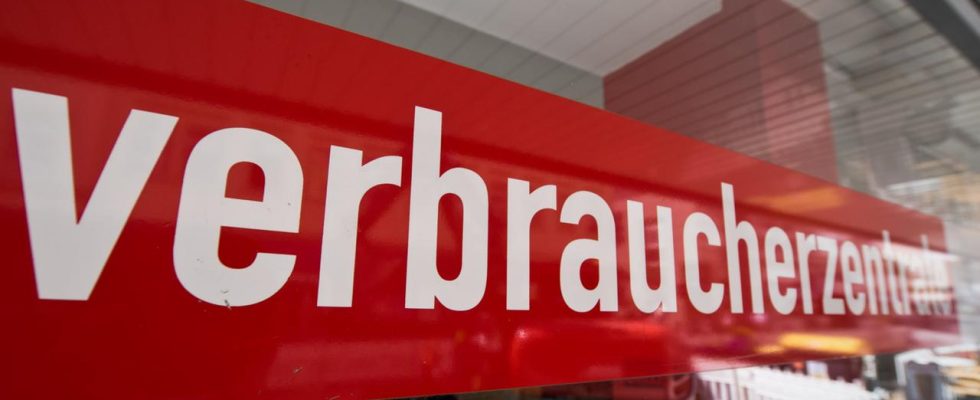exclusive
The calls for a climate bonus are getting louder. The Federal Association of Consumer Organizations has now calculated what it believes the state already owes citizens as a result of the higher CO2 prices.
“We don’t want to wait any longer, climate money now!” This is what it says on the WWF website, but also at Arbeiterwohlfahrt, IG Bau and others. The associations have launched a joint protest campaign. Addressee: the federal government. The Federal Association of Consumer Organizations (VZBV) also insists on a bonus that rewards climate-conscious behavior. Such an idea can be found in the traffic light coalition agreement.
“It’s annoying that it’s taking so long. We demand that the government does everything it can to ensure that climate money comes as quickly as possible,” said Thomas Engelke from VZBV. After all, consumers have been paying a surcharge on gas, oil and gasoline since 2021 due to the CO2 price, which is expected to continue to rise in the coming year, and are not receiving sufficient relief for this.
What is climate money?
Climate money is a concept in the coalition agreement. This could compensate for a future increase in the CO2 price. According to Ampel, the whole thing is intended as a social “compensation mechanism beyond the abolition of the EEG levy”.
The idea: the income from a higher CO2 price should be given back to the people. For example, every citizen could receive a certain amount every year. The bottom line is that those who behave in a less climate-damaging manner would benefit and would therefore also have lower costs due to the rising CO2 price. They would be rewarded, while those who, for example, use a lot of energy produced by fossil fuels or travel in an environmentally harmful way would also get the reimbursement, but would end up paying more because their expenses would be higher due to the rising CO2 price.
From the perspective of experts, such a bonus could particularly benefit people with low incomes, whose everyday behavior often has a less climate-damaging effect because they have no or only a small car and rarely fly.
Habeck sees citizens relieved
Robert Habeck, the Green Economics Minister, does not want to accept this. In the “Handelsblatt” this week he explained with regard to the income from the CO2 price: “We are giving the money back. As a state, we are taking over the EEG levy.” This would save citizens more than ten billion euros in electricity prices. “Almost all income from the CO2 price flows back to the people. This is actually climate money via the price of electricity.” According to the Federal Ministry of Economics, this means that next year “85 percent will flow directly back to reduce the burden on the EEG surcharge”.
But things have looked different for the past three years, argues the Federal Association of Consumer Organizations. The government’s total revenue from the CO2 price was more than twice as high as the direct relief. In total, the state received an additional 11.4 billion euros.
Consumer advice center demands 139 euros
Since the majority of the costs for the CO2 price already fall on consumers, they should also get money back – namely 139 euros per person. The VZBV has calculated this for the past three years in total. The numbers are there ARD capital studio exclusively. For a family of four that would be 556 euros. “I would like to see that on consumers’ accounts,” says energy expert Engelke.
When asked, the Ministry of Economics explains that the remaining income from the CO2 price flowed into the climate and transformation fund and therefore also ended up with the citizens: for example through funding programs for building renovations and heating replacement, energy advice or e-car funding. This meant that consumers were specifically supported. In addition, the CO2 price was not increased this year as planned in order to relieve the burden on people.
Climate money without a specific start date
In any case, the direct payment of a climate bonus is not planned in the near future. The CO2 price was introduced in 2021 under the grand coalition of the Union and the SPD, but climate money to compensate was only proposed by the traffic light in its coalition agreement. A specific start date was not mentioned, and the wording also suggests that such a payment could only come after the next federal election.
Finance Minister Christian Lindner from the FDP refers to this in an interview with the editorial network Germany: “The climate money remains on schedule. In this legislative period, as announced, a structure for the payment will be created. In the period afterwards, decisions will be made about the structure. That – and no more – we promised as a traffic light. It remains that way.”
Demand for rapid implementation
Other representatives of the traffic light parties see it differently. “The coalition has firmly agreed on climate money. That has to come in 2024,” said Green politician Katrin Göring-Eckardt. And he probably didn’t mean the Economics Minister’s offsetting ideas or the Finance Minister’s reference to the future, but rather a direct payout – in this legislature.
It is currently not possible to say exactly how high climate money could actually be in the next few years, if it were to come. 2022, for example, was marked by the energy crisis triggered by the Russian war of aggression on Ukraine. This led to very high prices and special effects. The calculations for the past three years therefore cannot be used to predict future figures.
Eva Huber, ARD Berlin, tagesschau, December 21, 2023 5:00 a.m


